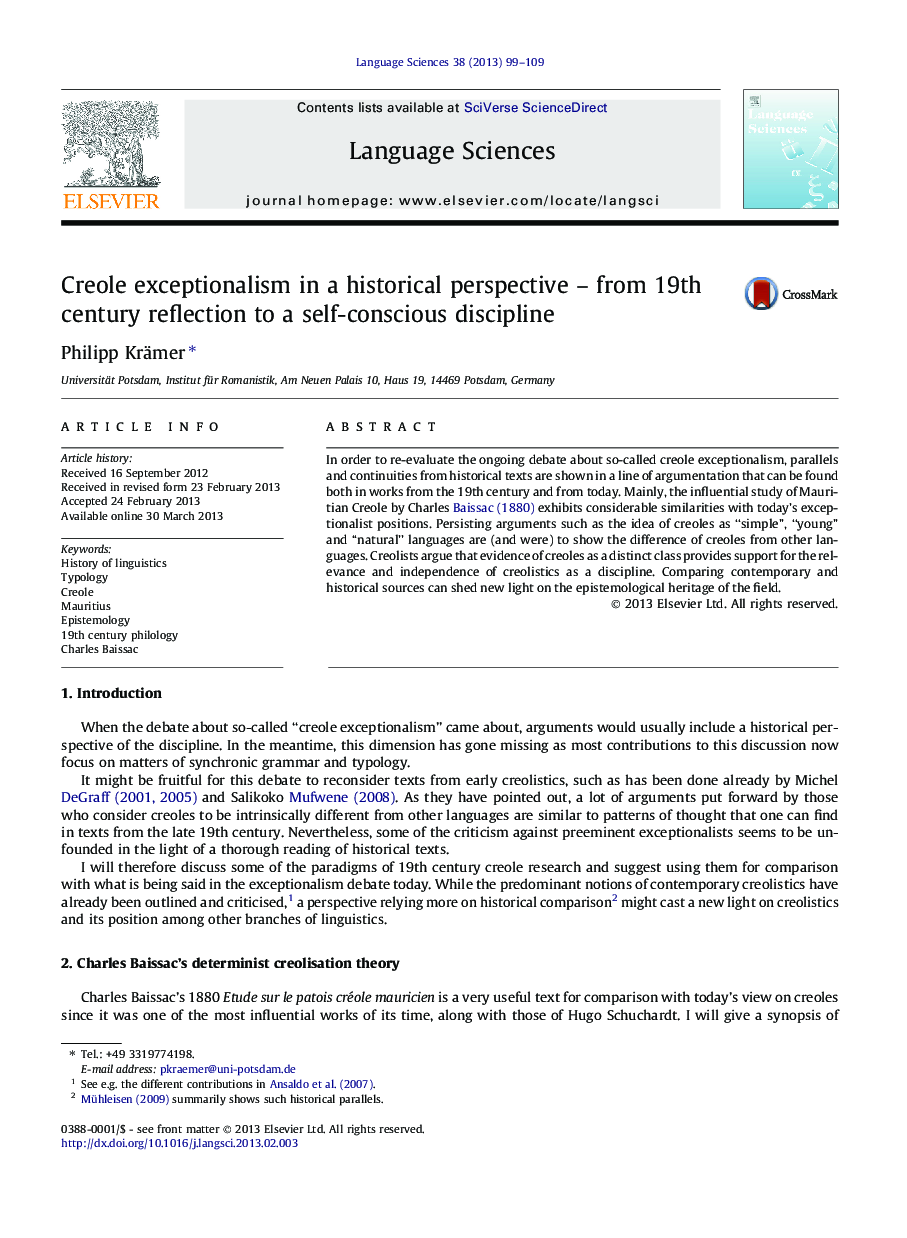| Article ID | Journal | Published Year | Pages | File Type |
|---|---|---|---|---|
| 1103213 | Language Sciences | 2013 | 11 Pages |
In order to re-evaluate the ongoing debate about so-called creole exceptionalism, parallels and continuities from historical texts are shown in a line of argumentation that can be found both in works from the 19th century and from today. Mainly, the influential study of Mauritian Creole by Charles Baissac (1880) exhibits considerable similarities with today’s exceptionalist positions. Persisting arguments such as the idea of creoles as “simple”, “young” and “natural” languages are (and were) to show the difference of creoles from other languages. Creolists argue that evidence of creoles as a distinct class provides support for the relevance and independence of creolistics as a discipline. Comparing contemporary and historical sources can shed new light on the epistemological heritage of the field.
► Historical texts in creolistics like Baissac (1880) show clear parallels with works of today’s “exceptionalists”. ► A line of argumentation based upon the notions of “simplicity”, “youth” and “naturality” persists. ► The idea of creoles as “different” relates to a perceived need for legitimisation of creolistics as a discipline.
